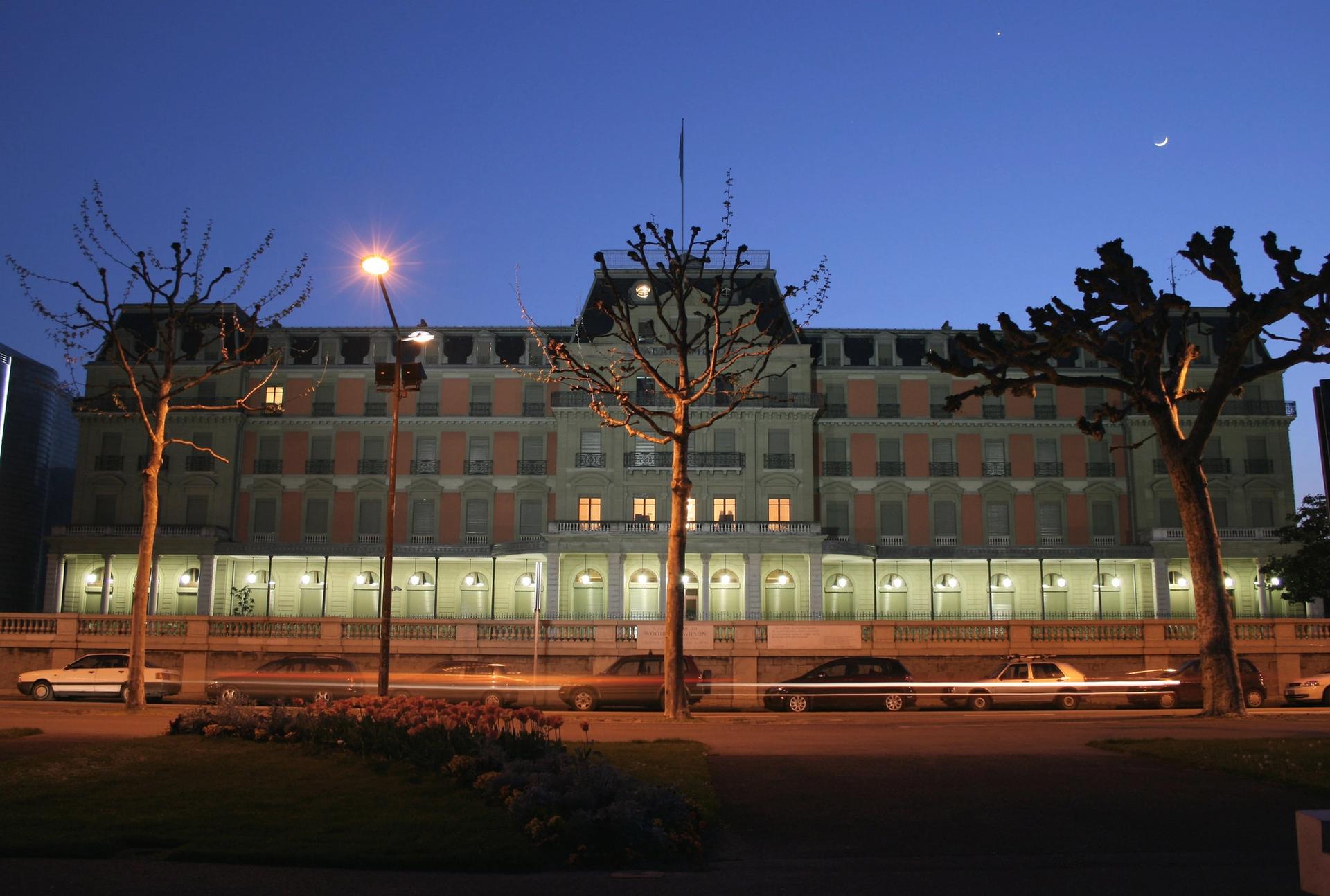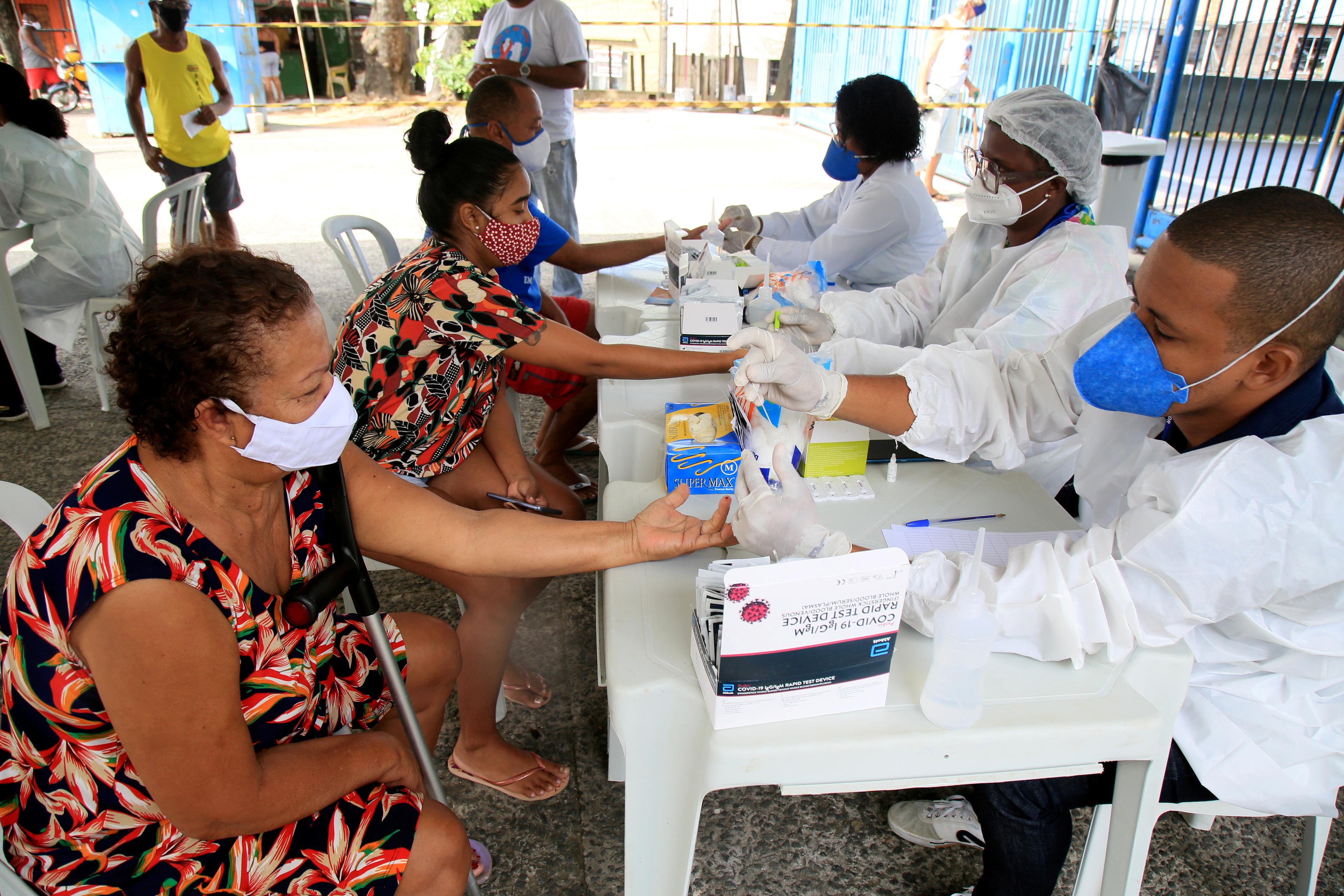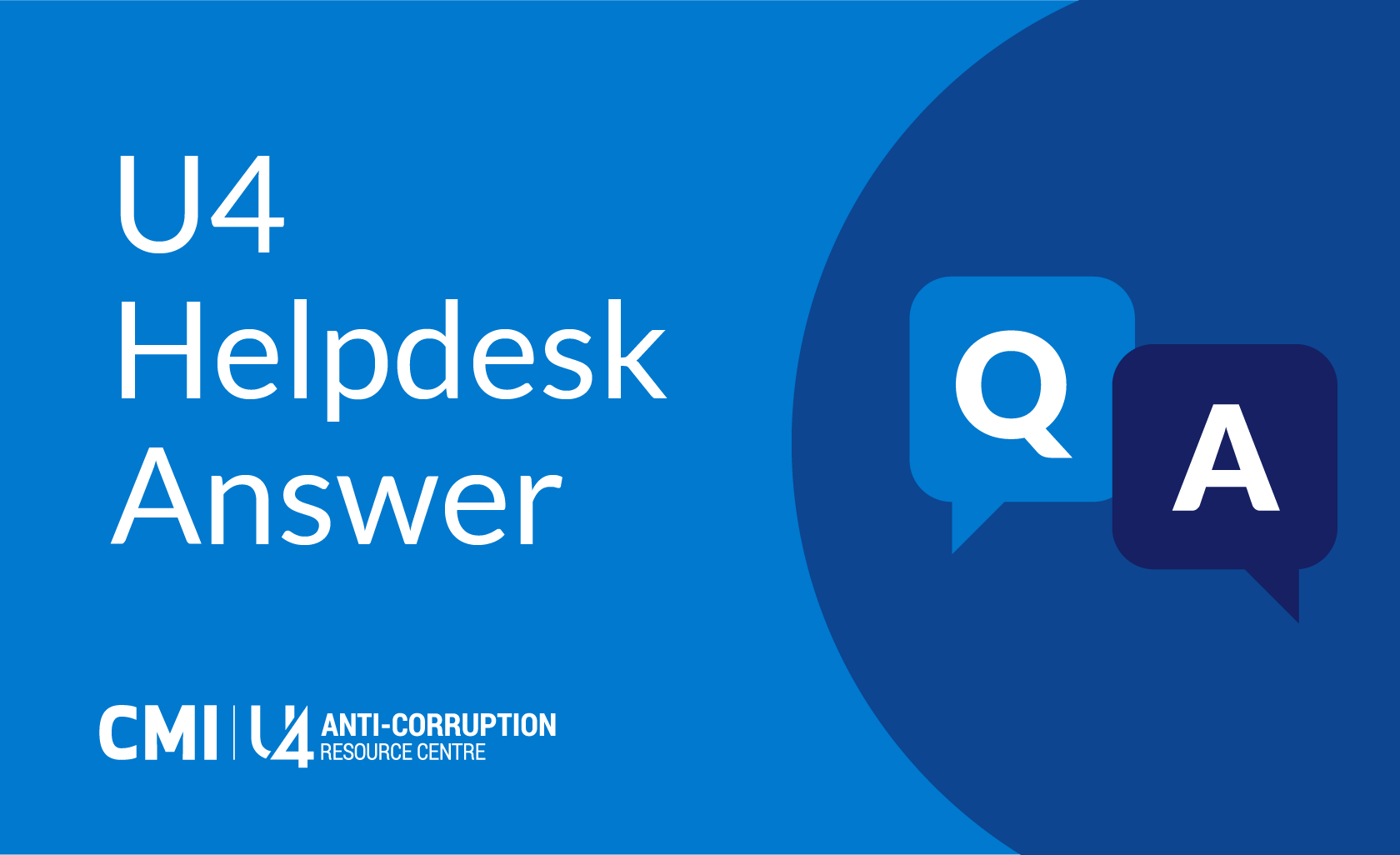Blog
Do we need a Special Rapporteur on Anti-Corruption and if so, what should its mandate look like?

Implementors of the UNCAC (United Nations Convention against Corruption) are increasingly facing pushback: from personal attacks against individuals to systemic undermining of anti-corruption institutions. Against this backdrop, a Special Session of the Conference of State Parties to the UNCAC took place in Sharm El-Sheikh on 15 December 2021. The virtual session – organised by the U4 anti-Corruption Resource Centre and the Centre for Civil and Political Rights – was guided by one key question: Do we need a Special Rapporteur on Anti-Corruption and if so, what should its mandate look like?
Watch the full recording of the session below:
The obstacles facing anti-corruption actors
The people and networks that benefit from corruption often have ‘vested interests’ and the means to protect them by pushing back against those trying to bring about more transparency and accountability. They use different tools for this depending on what is at their disposal (eg violence, counter lawsuits); who they are trying to silence (government officials, journalists, civil society); and in which context (established rule-of-law environments or fragile states). While there are no complete statistics on this, the pushback seems to increase in parallel with a rise of authoritarianism in many countries and a decline in the freedom of speech.
At a meeting of the Corruption Hunter Network in 2017 senior investigators and prosecutors of corruption cases discussed how their work was challenged by hostile justice environments. Stories of ‘lawfare’ against prosecutors who handle large-scale corruption cases around the world were shared in another event organised by the Basel Institute on Governance. Bias in favour of defendants in cases of white-collar crime, deliberate delays, and threats in various forms can jeopardise not only the outcome of cases, but also the willingness of law enforcement personnel to take this burden on. In these situations, internal support within justice sector institutions can be decisive. But sometimes, the institutions themselves are captured and the ‘enemy is already within.’
Those officially employed to prevent, investigate, prosecute and adjudicate corruption are not the only ones facing reprisals. We know of many journalists, NGO activists and regular citizens facing personal consequences for trying to bring injustice and misconduct to light.
Support mechanisms for professional anti-corruption fighters
There are some support mechanisms in place. One example is the relatively new International Anti-Corruption Champion Foundation (PIACCF), initiated by the Malaysian government under the auspices of the International Association Anti-Corruption Authorities (IAACA) in 2018. The PIACCF:
- Offers safety assistance to officials from IAACA members.
- Offers financial assistance to officials (eg for safety and sustenance).
- Recommends positions and opportunities so that those in trouble are able to find work, and continue their contribution in the fight against corruption.
The nearly US$950,000 fund has not yet been tapped into and PIACCF co-founder and trustee Dato Muhammad Salim Sundar encourages the submission of applications.e3f652f2b057
Another example is the International Association of Prosecutors (IAP). Since 2013 – through its Standing Committee for Prosecutors in Difficulty – the IAP has supported members whose independence, rights or personal safety are threatened. Gary Balch, General Counsel of the IAP, observes mounting problems for anti-corruption cases: an increasingly hostile court environment; satellite civil and criminal litigations against prosecutors to derail corruption cases; and large legal teams outgunning public prosecution’s resources. The IAP has also collaborated with UNESCO to develop guidance to its members on how to handle cases of violence against journalists.
But these mechanisms only cater to very specific professional groups and the complexity of the phenomenon requires systematic investigation and monitoring by a UN body over time.
Calls for a Special Rapporteur on Anti-Corruption require follow-up lobbying
Calls for a Special Rapporteur have been made on various platforms by different parties. A draft report of the Foreign Affairs Committee of the European Parliament contains the recommendation for the European Council to insist on the establishment of a
UN Special Rapporteur on financial crime, corruption and human rights with a comprehensive mandate, including an objectives-oriented plan and a periodic evaluation of the anti-corruption measures taken by states; take the lead in mobilising support among Human Rights Council member states, and to become joint sponsors of a resolution that will bring about the proposed mandate.
The Committee’s rapporteur, Katalin Cseh is confident that the recommendation will be adopted by a majority in the European Parliament in January 2022. However, to be implemented by the European Council, it will require the unanimous support of all 27 member states, which is highly unlikely. It is therefore the responsibility of individual member states and others to build alliances and lobby the UN Human Rights Council for the set-up of a Special Rapporteur.
Anti-corruption needs its own special mandate
This need for like-minded countries and organisations to lobby the Human Rights Council as a next step, was reiterated by Diego García-Sayán, Special Rapporteur on the Independence of Lawyers and Judges. He has included corruption in judiciaries in several reports since 2017 but considers the interlinkages between human rights violations and corruption sufficiently complex and pervasive to warrant a mandate of its own.
A study from the Centre for Civil and Political Rights found that even with 45 thematic mandates, a Human Rights Council and nine treaty bodies, the issue of corruption still falls through the cracks of the UN human rights system. These mechanisms simply do not have the resources, knowledge or expertise to go in depth on how to address corruption.
In a U4 blog post earlier this month, Làzarie Eekeloo, suggested a further benefit to introducing a new mandate. By acting as a focal point for the anti-corruption community, a Special Rapporteur would make all human rights mechanisms more accessible to everyone involved in anti-corruption work.
The report from Special Rapporteur Mary Lawlor on human rights defenders’ anti-corruption work (forthcoming, March 2022) is expected to give further momentum to the topic. The report and related events should be used for more in-depth discussion of a new mandate to ensure better integration of human rights and anti-corruption approaches, and the protection of those working towards both.
- The PIACCF does not have a website yet. It can be contacted at its secretariat: Phone: +603 3082 9888/+601 1189 55045; Fax: +603 3082 9988; Email: secretariat@piaccf.com.
Disclaimer
All views in this text are the author(s)’, and may differ from the U4 partner agencies’ policies.
This work is licenced under a Creative Commons Attribution-NonCommercial-NoDerivatives 4.0 International licence (CC BY-NC-ND 4.0)


